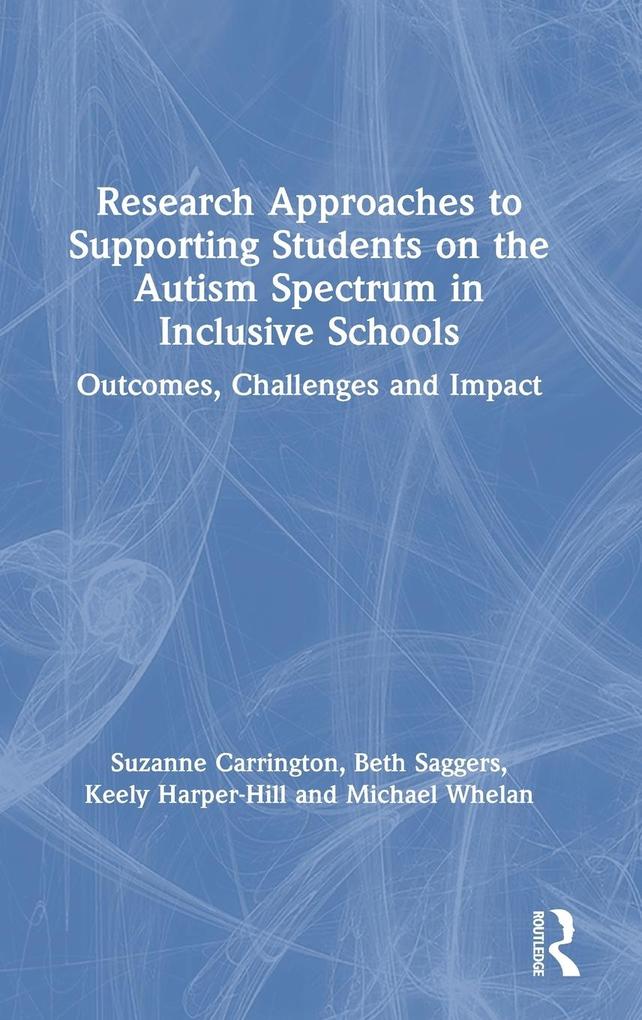This book will support researchers in the field of education disability by outlining inclusive research approaches and their challenges, outcomes, and impact. Each chapter reports on school/university-based research supporting inclusion for young people on the autism spectrum. This research has been developed in Australian schools with students, families, teachers, and specialists. The intent of this approach is to mobilise new knowledge to the benefit of all students, including students on the autism spectrum, their families, teachers, and school communities. This book showcases how research can be more inclusive with a move to collaborative, participatory, and co-produced research that will impact on young people, families, and educators. The authors highlight the complex challenges and the positive outcomes of conducting research in inclusive ways and provide detailed practical strategies for researchers.
Inclusive education is socially, emotionally, and academically beneficial for all students and positively impacts on respectful attitudes to difference. This book provides a groundbreaking approach to research that by design is inclusive and therefore provides an invaluable opportunity for building the foundations of an inclusive society for all. This book will be invaluable to researchers, educators, and professional learning in schools.
Inhaltsverzeichnis
Part 1 - Introduction. 1. An introduction to research in inclusive education: Empirical evidence for supporting an inclusive approach for students on the autism spectrum. 2. Inclusive research practice: Engaging autistic individuals and their families in research. Part 2 - Outcomes of an inclusive research approach. 3. Supporting students on the autism spectrum in inclusive schools: Research to inform implementation of support and evidence-based practices. 4. Autistic voices in autism education research. Part 3 - Knowledge translation and research impact. 5. With teachers, for teachers: Knowledge translation and professional learning. 6. Meeting the needs of all: The case to translate the evidence base beyond autism. 7. Developing communities of practice for educator professional learning - Developing connections in rural and remote regions. Part 4 - Conclusion. 8. Summary and propositions.












